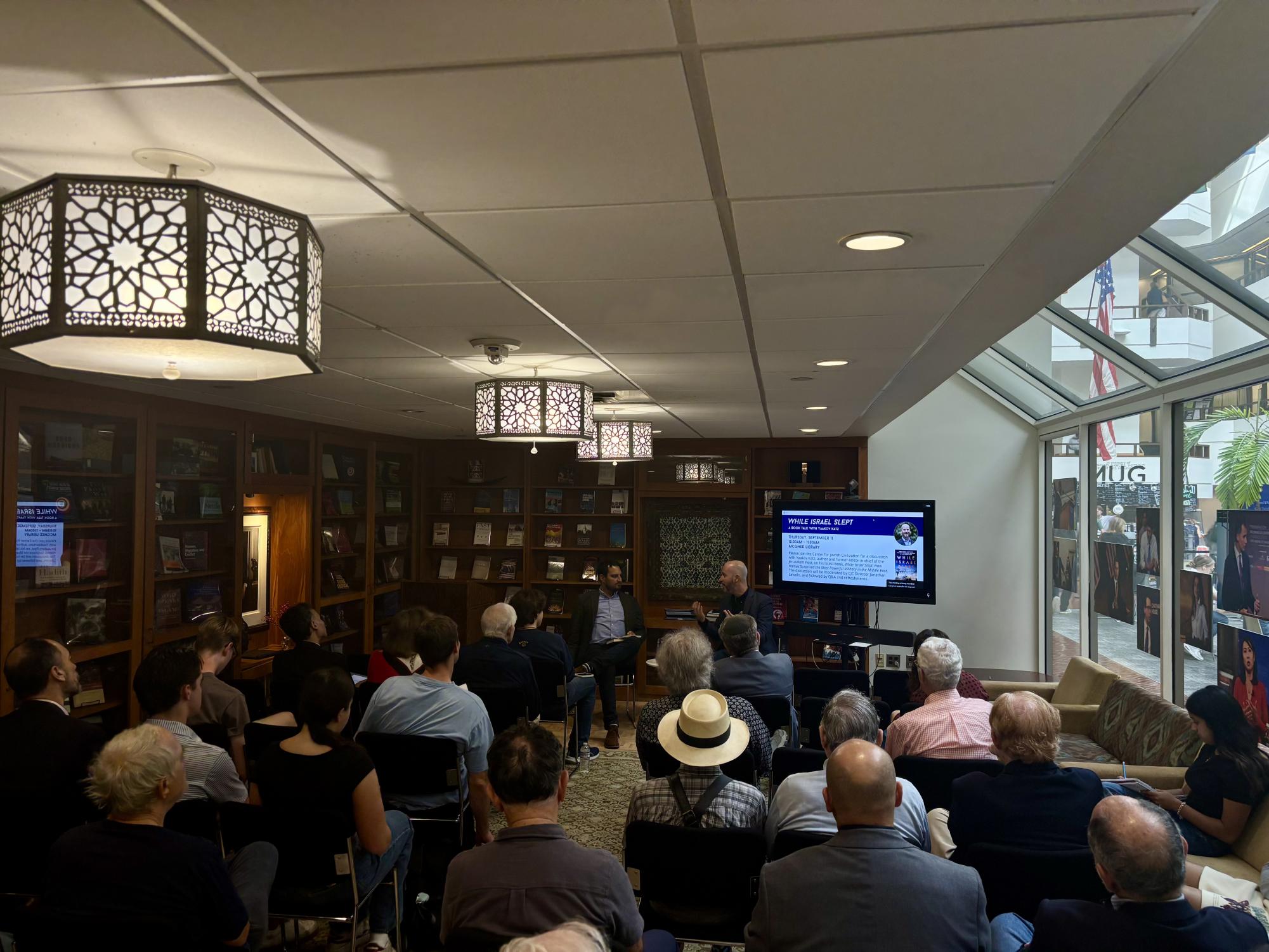An Israeli journalist chronicled the internal Israeli political and military choices before Oct. 7, 2023, at an event hosted by a Georgetown University academic group Sept. 11.
Yaakov Katz, the former editor-in-chief of the Jerusalem Post, discussed his book, “While Israel Slept,” which narrates the events leading up to Hamas’ attack on Israel on Oct. 7, 2023, faulting the Israeli government’s complacency. Georgetown’s Center for Jewish Civilization (CJC), an academic center within the School of Foreign Service, hosted Katz, with CJC director Jonathan Lincoln moderating.

Katz said it became strikingly clear to him that the Oct. 7 attacks were the result of shortcomings within the Israeli government, saying the government knew ahead of time about events that could suggest Hamas movement within Israel.
“They were uncovering underground rocket launchers,” Katz said. “What was that about, if not to launch rockets? They were preparing underground bunkers for their top commanders, like Mohammed Deif, the elusive military commander, for him and his family to descend into.”
Lincoln said Katz’s book provides unique insight into the events which occurred the night of Oct. 6 and is crucial to understanding potential mistakes of the Israeli government.
“It’s only someone with your knowledge, in your research capacity, that, because of your position, can really explain that the failure wasn’t solely about what did or didn’t happen on Oct. 6,” Lincoln said. “It’s absolutely vital reading, I think, for anyone who wants to understand this failure and really understand what’s happening today.”
Katz said he and his co-author, Amir Bohbot, originally planned to write about Israel’s strike capability, but had to come up with a new plan after Oct. 7, 2023.
“We signed a deal with our publisher, St. Martin’s Press, and that was probably in June 2023,” Katz said. “Then, of course, four months later, we all know what happened on Oct. 7 and that book was no longer really relevant.”
Katz said one of the many reasons Israel did not take action following the attacks was the government’s overconfidence in its defense technology.
“So we created all this technology that gave us a sense of security, but it was false,” Katz said. “We were reliant on electronic intelligence, signal intelligence, without any human intelligence assets.”
Katz added that Israeli intelligence and politicians were chiefly concerned with other threats, such as Iran and the militant group Hezbollah.
“We had bigger fish to fry — we have Iran and we have Hezbollah with 150,000 rockets and missiles — Hamas is there, but they’re lower on the totem pole,” Katz said. “If we could take out all of Iran’s military leadership, scientific leadership and penetrate with the help of the Americans into their underground uranium enrichment processing facilities, how come we couldn’t take care of this?”
The United States launched strikes on Iranian nuclear facilities in July to prevent Iran from developing nuclear weapons, destroying some of its nuclear capabilities.
Katz said more human intelligence is needed in Gaza, rather than solely relying on the technological capabilities which created complacency in the first place.
“How is it that 3,000 people cross into Israel on October 7th?” Katz said. “Now, not all of them were Hamas fighters, but out of the hundreds that were, we didn’t have one guy who could pick up a phone and say, ‘Hey, we’re coming’ — not one. We had no human informants in Gaza.”
Katz said Israel must establish a “Commission of Inquiry” to examine the attacks and the government’s response so that they are better prepared in the future.
“There is no question in my mind that we desperately need a State Commission of Inquiry,” Katz said. “It is existential for the survival of Israel. We have to make sure that we learn the lessons and we institute the structural changes that are required so that this will never happen again.”